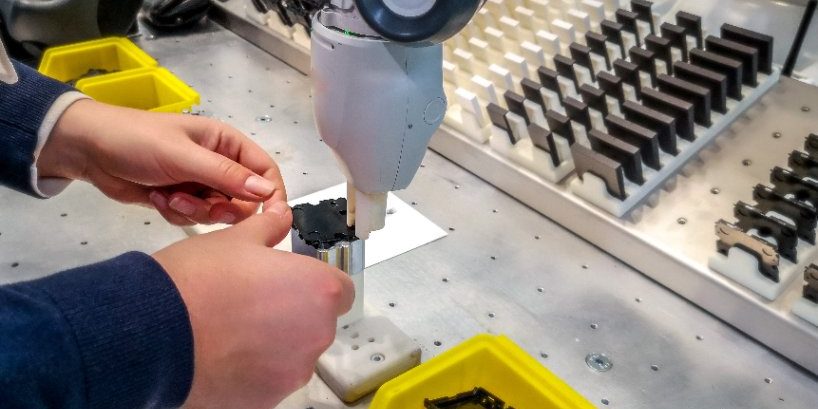Technological advances have transformed everything else from how we see entertainment to how we conduct business all through years.
Never has this been more evident than in the industrial business, where automation has become the standard and robots have essentially replaced chevaliers.
Even though these may appear to be drawbacks, technical advancements have laid the basis for the development of numerous new and innovative products. Technology also helps to reduce cost and improve process efficiency.
In this blog, we’ll look at a few of the key ways that technology is transforming the manufacturing process, as well as how having an IPC certification may contribute.
Since the crisis began in 2009, manufacturing has witnessed a tremendous improvement. Manufacturing presently employs over 12.8 million people, an increase of almost 1 million. Manufacturing production is also expanding, boosted in part by increased technological usage.
We are surrounded by technology. Every day, we use computers and cellphones. Our houses are controlled by smart gadgets, and when we order meals at a restaurant, our waitress uses a little portable tablet to take our order.
Manufacturing’s technological advancement
Technology was first used in manufacturing during the Industrial Revolution, when mill owners attempted to enhance output in cotton mills.
Most of us today could not function without technology, and the manufacturing industry is no exception. The emergence of contemporary technology began in the 1980s, with the introduction of electronics, nanotechnology, and sophisticated materials.
Technology in 3D
Manufacturers may now develop intricate components fast and affordably thanks to 3D design technology.
The industry has been transformed by 3D technology. Smaller businesses have been quick to adopt 3D printing. It’s ideal for producing low-volume, high-quality children’s toys and tiny technological devices.
Small inventors and entrepreneurs may suddenly become worldwide producers owing to the advantages of 3D printing.
Industrial revolution
Many experts say we are in the middle of a fourth industrial revolution, in which technological advances like nanotechnology and photonics are replacing older ones. Manufacturing has a bright future since new areas are coming up.
Smaller enterprises may now compete in the global market with the big boys due to the advances of digital technology. Customers from all across the world may interact with them, and they can work on orders from micro manufacturers.
Mass manufacturing has been transformed by automated methods and complicated gear. Increased output has reduced manufacturing costs, resulting in lower prices on the high street. Electronic devices are now more affordable than ever, attributable to reduced production costs.
Robotics in Industry
Manufacturing’s return as a key contributor to GDP is being aided by the deployment of industrial robots.
In the United States, there are around 237k robots on industrial production lines, but much more in Japan, where electronics manufacturing is a huge business.
Humans are outperformed by robots. They are more accurate and capable of handling complex production line jobs. Robots do not require rest periods and do not become unified, which is a significant benefit for industrial operations.
When it comes to safety, technology removes human mistakes. Ballprobe sensors handle production line sampling where contamination is a concern. This sort of equipment is invaluable in a high-risk medical laboratory.
How should you deal with new technologies?
Despite concerns that technology may eventually replace human labor, technology is a useful addition to the manufacturing sector, and schools must continue to encourage students to pursue STEM degrees.
Since today’s children will be the industry’s future leaders, they will need essential skills to push US manufacturing to even greater worldwide success.
Professionals may also cope with this innovation by enrolling in an on-site IPC training to further increase knowledge.
What are the merits of IPC certification and training?
IPC training, whether those are online or on-site IPC training, shows that you’ve pursued all of the relevant electronic manufacturing guidelines and standards.
Businesses and consumers are increasingly requiring IPC certifications when tendering for labor or recruiting.
The IPC accreditation proves that all designs adhere to IPC specifications, that you have a high level of skill and knowledge, that your abilities and experience have been formally recognized, that you are employable, and that you have prior experience and knowledge of commonly used electronic manufacturing procedures.
IPC certification is essential for the electronics industry to create value. These certification programs are taught in a classroom setting by IPC certified instructors and are based on industry-developed and recognized IPC standards.
Wrap-up
As technology advances, the demand rises, always remember that. We do not know how fast technology can evolve but we can do something to cope with it.
Having IPC certification is one of the greatest ways to deal with the demands of rapid advancement, especially in manufacturing. With the support of a leading group of Electronic Manufacturing specialists Blackfox that give technical training in the Electronic Manufacturing Industry, you may earn your certification on-site.






